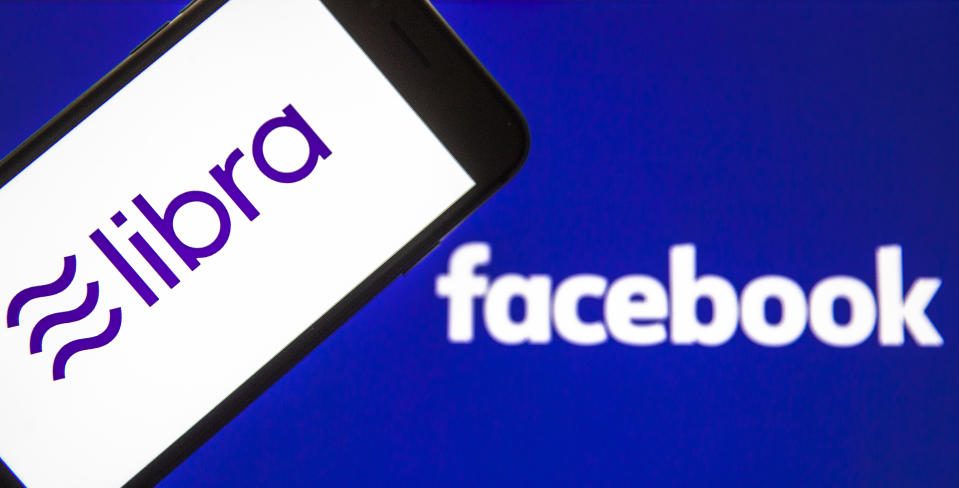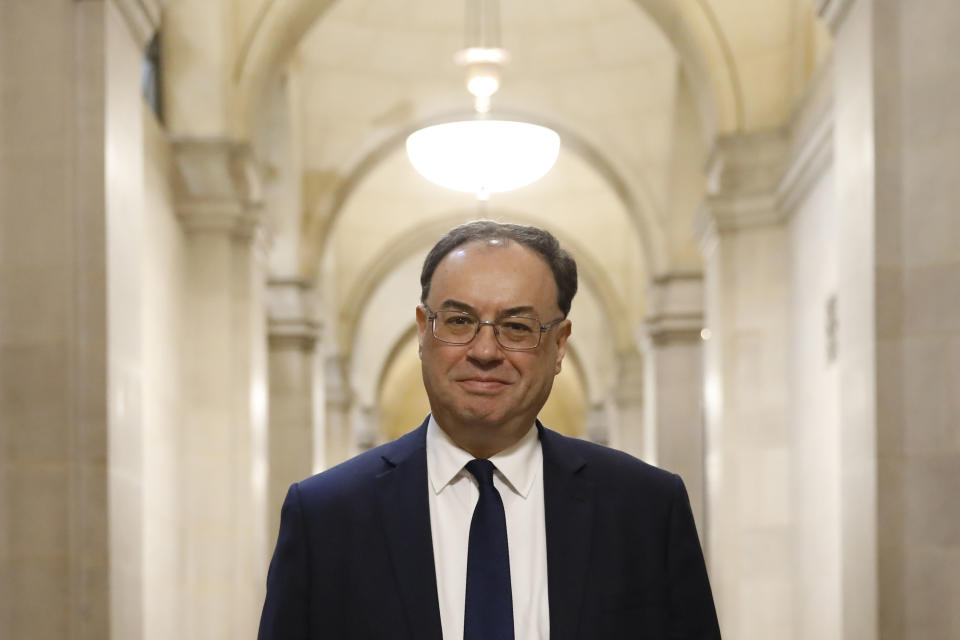Bank of England's Bailey pours cold water on Facebook's Libra

Bank of England governor Andrew Bailey has taken a side-swipe at Facebook’s (FB) cryptocurrency project Libra and others like it.
“The bar is set very high for private stablecoins, and I don’t think they have met that bar,” Bailey said during a virtual conference for central bankers on Thursday organised by the European Central Bank.
Stablecoins are cryptocurrencies tied to the value of an underlying asset, such as a national currency, in order to bring price stability. They were created in response to the wildly fluctuating value of cryptocurrencies such as bitcoin (BTC-USD). The price volatility meant cryptocurrencies were attractive for investment but unsuitable for use as money in everyday transactions.
Watch: What is a budget deficit and why does it matter?
READ MORE: Facebook targets 'red hot' market with crypto Libra
Several crypto companies like Circle and the Winklevoss twins’ Gemini have launched their own stablecoins but the most high-profile example is Facebook’s Libra. Facebook announced its intentions to create a stablecoin last year, planning to peg its value to a basket of international currencies.
The project was met with an immediate backlash from politicians and central bankers around the world. The G7 nations set up an emergency committee to monitor the project and central banks around the world warned Libra could pose risks to financial stability and monetary policy transmission, as well as offering a new means for money laundering. Facebook chief executive Mark Zuckerberg was hauled before US Congress to answer questions on the project from sceptical lawmakers.
Facebook was ultimately forced to delay the timeline of its stablecoin project and promised to work with global regulators to address their concerns. Libra has yet to launch.

Bailey’s comments suggest Facebook’s project still has a way to go before it gets the blessing of international central bankers. He suggested that central banks may in fact leapfrog Facebook and other private sector efforts by launching stablecoins of their own.
“It may be that the answer... is actually a central bank digital currency, where you would get that guarantee and certainty of value,” he told the virtual conference according to Reuters.
Central banks around the world have been exploring the possibility of launching digital versions of national currencies using cryptographic technology. The topic has gained more attention this year as the COVID-19 pandemic has accelerated the adoption of digital payments around the world.
READ MORE: Facebook's Libra faces 'headwinds' on trust, says Ripple CEO
The Bank of England published a discussion paper in March looking at how a “digital pound” might be created, adopted, and regulated. The central bank jas asked for feedback from the industry on its proposals.
Earlier this week, UK Chancellor Rishi Sunak set out his priorities for developing the UK’s financial services sector post-Brexit. The Treasury said in a statement that Britain wanted to lead “the global conversation on new technologies like stablecoins and Central Bank Digital Currencies”. It promised to put in place regulation to govern the use of stablecoins and said it “welcomed” the Bank of England’s work on central bank digital currencies.
Watch: Why can't governments just print more money?

 Yahoo Sports
Yahoo Sports 